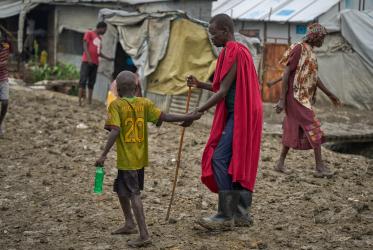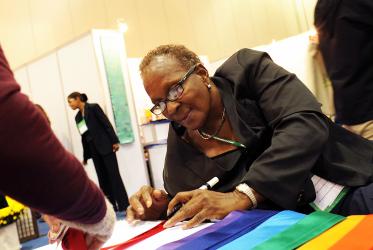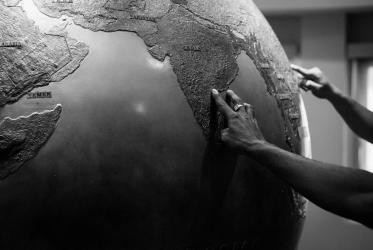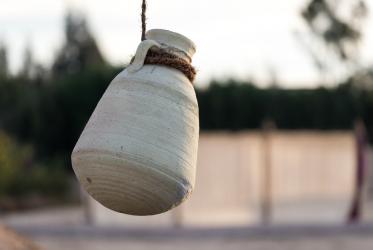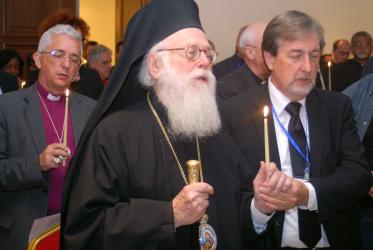Displaying 1 - 20 of 33
Upcoming webinar will focus on COVID-19 and caste discrimination
24 February 2022
Forum strengthens ecumenical commitment to diakonia
12 October 2017
Ecumenical diakonia: sharing God’s gifts at all tables
05 October 2017
Religion meets science in forum at WCC
09 August 2017
East African communities discuss disability, theology
17 November 2016
Hielke Wolters: Apostle of mission strategies
01 August 2016
Land rights focus of panel discussion
17 November 2015

